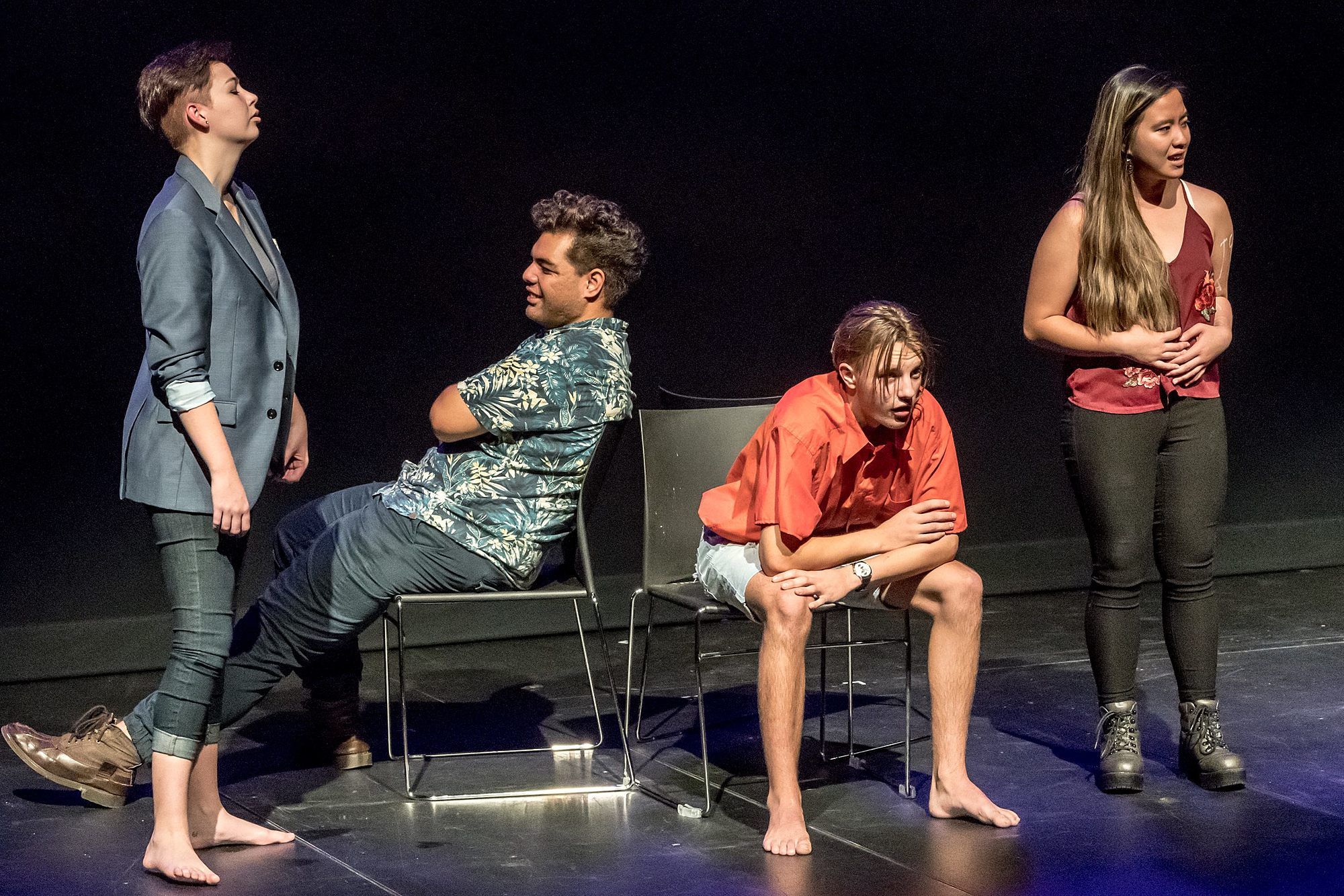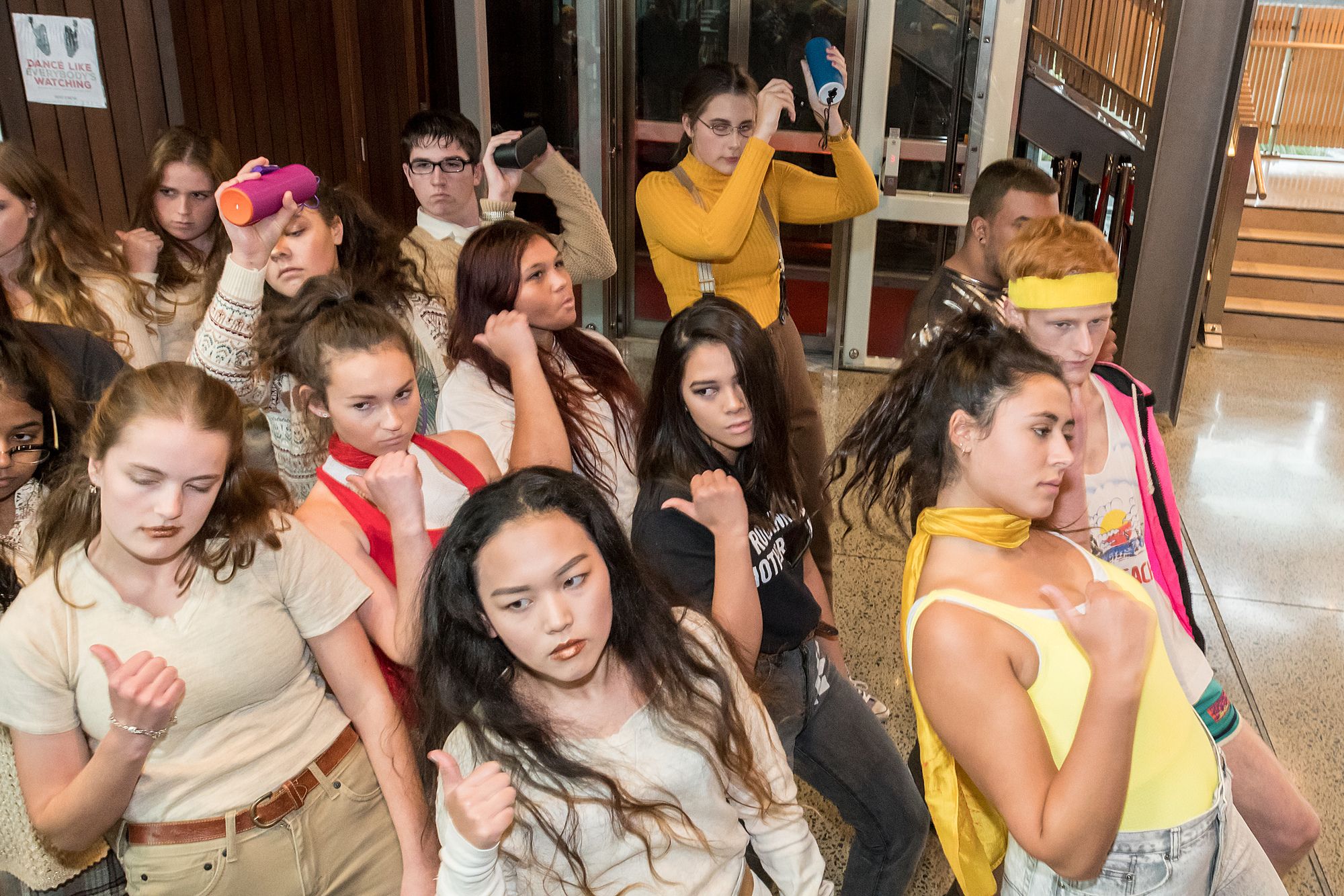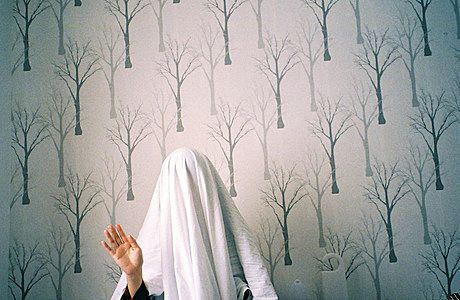Celebrating Difference: A Response to 'Here and Now' Festival Works
Astrid, 14, responds to Here and Now Festival works
Dance Like Everybody's Watching, directed by Alice Canton and Mouth Tongue Teeth, from Niu Wave Collective directed by Grace Taylor were staged as part of Auckland Theatre Company's Here and Now Festival during the weekend, alongside Boys. Kate Prior saw both works with Astrid, 14, who responds here.
Dance Like Everybody’s Watching
Dance Like Everyone’s Watching is a lovely, fun-filled production. The play is very high energy from the start to finish. It's very easy to understand and the actors are very friendly and do an awesome job getting the whole audience involved in each stage of the play.
The play starts with the cast coming down an elevator, walking out and dancing to their music. This play is a unique experience, as the audience walk around the whole space with the actors and interact with them. Interacting with the characters make them seem a lot more real than if they were up on a stage, because the audience is experiencing everything with the characters and we see them evolve throughout the play. This kind of interaction between the audience and the actors is something you don't get from film and television.
The end of the play ties the whole thing up really effectively. Everyone – the cast and the audience – goes down in the elevator dancing. The play sends a positive message: to love yourself, be yourself and to do what makes you happy.
Mouth: Tongue: Teeth
Mouth: Tongue: Teeth is a profound spoken word piece, mainly focusing on colonisation and the effects it has had on today’s youth. I'd not seen a spoken word performance before. The spoken word format is more effective than written poetry, as there are certain auditory effects which only work when poetry is read out loud, and these effects make the poetry really come alive.
The piece starts with a compelling monologue about how our teeth hold all of our stories and all of our memories, that they have trapped all of these things over the years. The next poem is a boy at the dentist, about to get his teeth pulled. The teeth are used as a metaphor; his culture has been shunned and disrespected and society is trying to rip it out of him and replace it with something that isn’t real.
In another poem, the poet describes wanting to speak in her native tongue. She wants to be in-sync with her culture but it didn’t feel natural because her ancestors had been forced to speak English. Back then, it may have been framed as possibly 'for their own good', so they wouldn't be discrimated against, when in fact, it has had the opposite effect on the culture.
Mouth: Tongue: Teeth shows us that all cultures are very important and that we need to accept everyone for who they are so we can all be a lot happier. Not everyone should be the same, and our differences should be celebrated, not looked down upon.



